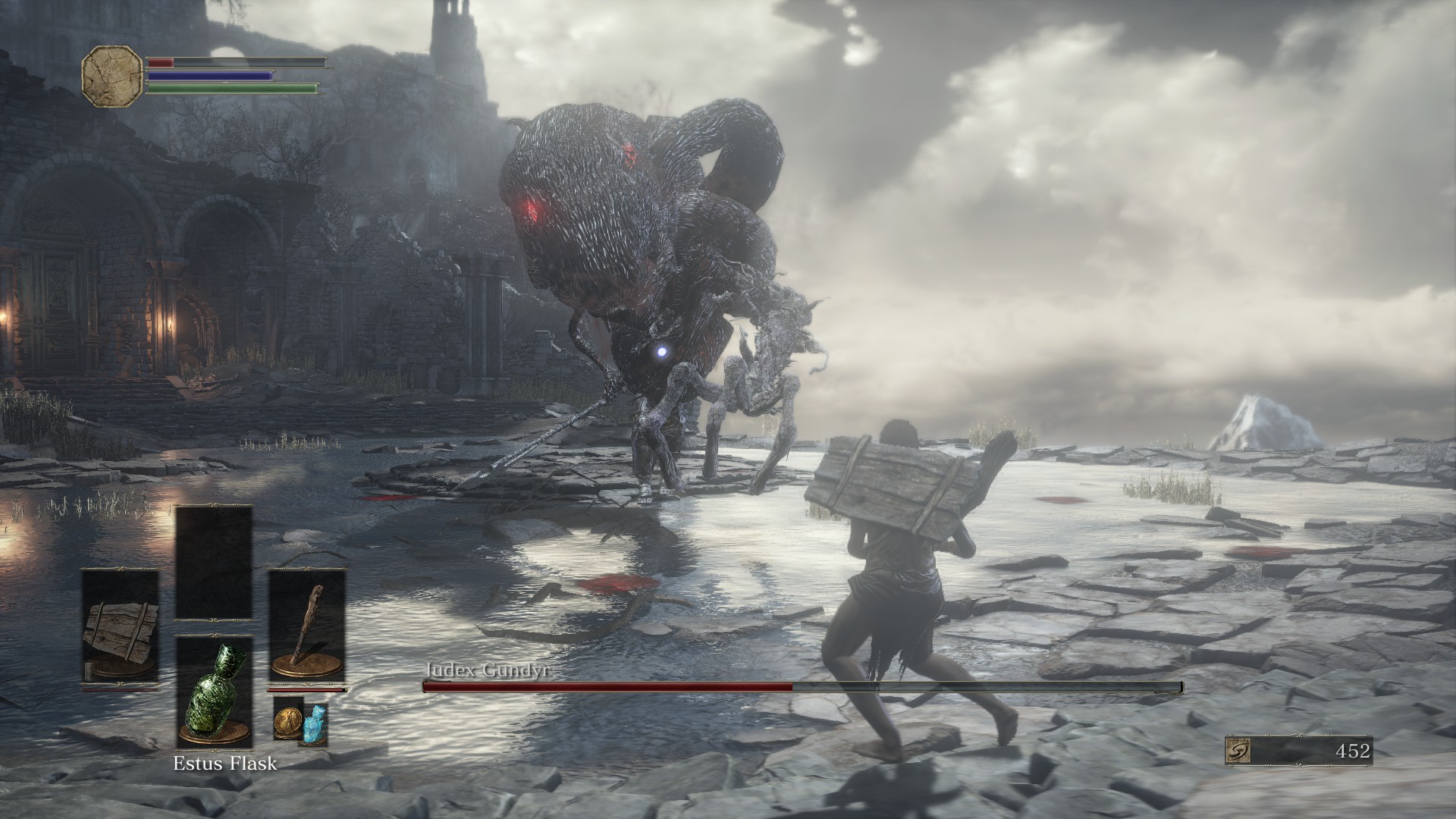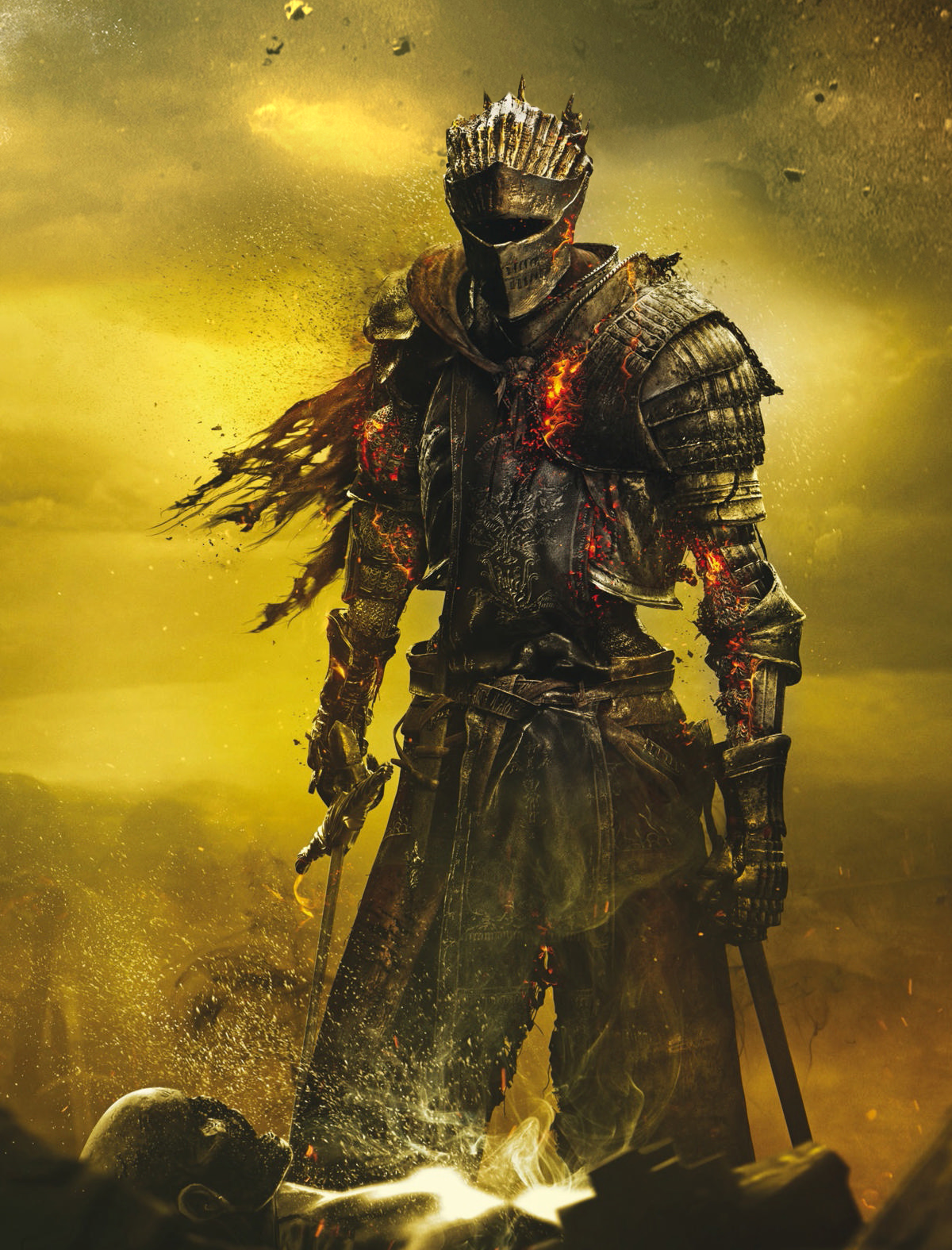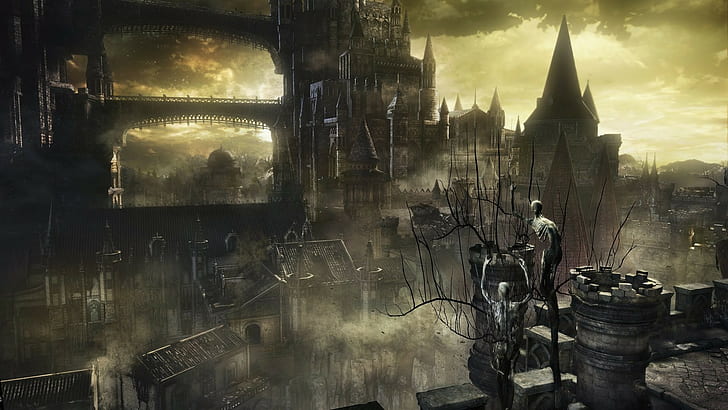
The emphasis on deaths and the restrictive save points are also similar to the early Resident Evil games, and the dark atmosphere is similar to the Silent Hill series (1999 debut). For example, the narrative structure and puzzle-oriented progression of Souls is similar to Capcom's Sweet Home (1989) and Resident Evil series (1996 debut) as well as Konami's Silent Hill series (1999 debut). Soulslikes also have survival horror elements. Other elements such as the souls-collecting mechanic, level-ups, Metroidvania-like exploration, and checkpoint system, are also similar to Onimusha and Devil May Cry.

Some of the Souls combat mechanics that are similar to hack & slash games include animation priority, hitboxes, active frames, i-frames, and dodge-rolling. Soulslikes also have hack & slash elements, with similarities to Onimusha (2001), Devil May Cry (2001), Otogi (2002), and Ninja Gaiden (2004). Berserk in particular has been a major influence on Soulslikes, including the Souls series and Dragon's Dogma, especially in terms of plot, lore, atmosphere, and art design.

Miyazaki was also inspired by classic Japanese manga, especially Berserk (1989 debut), as well as Saint Seiya (1985 debut) and JoJo's Bizarre Adventure (1987 debut). Examples of Zelda elements adopted by Souls include the dungeon exploration, environment interaction, inventory system, item upgrades, and melee combat mechanics such as Z-targeting, dodge-rolling, and shield-blocking. The Legend of Zelda: The Ocarina of Time (1998) in particular served as a "textbook for 3D action games" according to Miyazaki when he created Demon's Souls (2009). He was inspired by classic Japanese video games, especially The Legend of Zelda series (1986 debut), as well as the early Dragon Quest games (1986 debut), Ico (2001), and the King's Field series (1994 debut). The Souls series (2009 debut) was created by From Software's Hidetaka Miyazaki. In turn, Monster Hunter was inspired by Sega's Phantasy Star Online (2000) for the Dreamcast. The Metroidvania genre laid the foundations for the Soulslike, including "dense, maze-like environments, expert pacing that taxed players’ ability to soldier on for long stretches between rest points, and combat that demanded both precision and expertise." While associated with the Souls series (2009 debut), the earlier "Hunting RPG" subgenre began by Capcom's Monster Hunter series (2004 debut) in Japan may be considered the first Soulslikes, as they featured most of the key Soulslike elements prior to Demon's Souls (2009).

The ancestors of the Soulslike are the Metroidvania genre and The Legend of Zelda series. The Soulslike genre has Japanese origins.


 0 kommentar(er)
0 kommentar(er)
